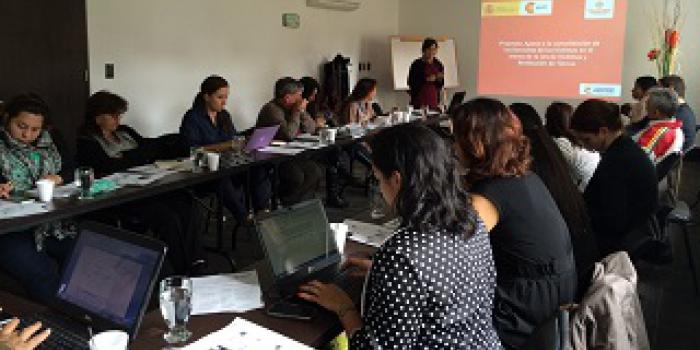
International cooperation and government reflect on reparations
‘A strong civil society is needed to provide comprehensive reparation for victims,’ said on Monday Ana María Torres, who is the coordinator of the Victims Unit’s cooperation team, in a meeting with several social organizations working with victims of the internal armed conflict.

‘A strong civil society is needed to provide comprehensive reparation for victims,’ said on Monday Ana María Torres, who is the coordinator of the Victims Unit’s cooperation team, in a meeting with several social organizations working with victims of the internal armed conflict.
Participants talked about the advances to date, but also about the challenges faced by the implementation of the Victims and Land Restitution Law (Law 1448 of 2011), in an event aimed to assess the first phase of a project implemented by the Victims Unit and the Spanish Agency of International Cooperation for Development (AECID), with organizations such as Tierra y Vida, Benposta, Fundación Círculo de Estudios, Organización Femenina Popular, and Redepaz.
Reparation of children and youth in Buenaventura, the situation of land claimers in the Urabá region, and psychosocial attention for women who were victim of sexual violence were some of the topics discussed. All the organizations agreed that the Victims Unit is increasingly acknowledged in the regions, and expressed their wish to have more support from local governments in order to keep on progressing on the implementation of the Victims Law.
‘Resources provided by international cooperation are complementary to our investment, and have helped us to internally strengthen our institution, to help victims organizations, to fund small productive projects, in communications, in participation, in humanitarian attention and assistance for the communities we help,’ said Torres. ‘Thanks to cooperation we have managed to go a little bit beyond in our projects,’ she concluded.






